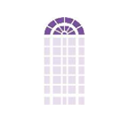Science
Science Subject Lead: Mrs Probert

Science Link Governor: Mrs Carol Jones
Intent
At The Arches, it is our intent to provide our children with a scientific curriculum that is accessible to all and achieves the following:
- develops our children’s scientific knowledge and conceptual understanding through the specific disciplines of biology, chemistry and physics
- develops our children’s understanding of the nature, processes and methods of science through different types of science enquiries that help them to answer scientific questions about the world around them
- equips our children with the scientific skills and knowledge required to understand the uses and implications of science, today and for the future
- develops an enthusiasm and enjoyment of scientific learning and discovery
At The Arches, we encourage our children to be inquisitive throughout their time at our school and beyond. The science curriculum fosters a curiosity in our children about their universe and promotes respect for the living and non-living. We believe science encompasses the acquisition of knowledge, concepts, skills and positive attitudes. Throughout the programmes of study, our children will acquire and develop the key knowledge that has been identified within each unit and across each year group, as well as the application of scientific skills. We ensure that the working scientifically skills are built-on and developed throughout our children’s time at our school so that they can apply their knowledge of science when using equipment, conducting experiments, building arguments and explaining concepts confidently and continue to ask questions and be curious about their surroundings.
Implementation
Our teachers create a positive attitude to science learning within their classrooms and reinforce an expectation that all children are capable of achieving high standards in science. Our whole school approach to the teaching and learning of science involves the following:
- Science is taught weekly, by the Subject Lead, in planned and arranged topic blocks, which link, whenever possible, to our Read to Write texts and/or our Creative Curriculum topics being studied in each year group. This is a strategy to enable the achievement of a greater depth of knowledge.
- Through our planning, we involve problem solving opportunities that allow our children to find out for themselves. Our children are encouraged to ask their own questions and be given opportunities to use their scientific skills and research to discover the answers. Planning involves creating engaging lessons, often involving high-quality resources to aid understanding of conceptual knowledge. We use precise questioning in class to test conceptual knowledge and skills, and assess our children regularly to identify those children with gaps in learning, so that all our children keep up.
- We build upon the learning and skill development of the previous years. As the children’s knowledge and understanding increases, and they become more proficient in selecting, using scientific equipment, collating and interpreting results, they become increasingly confident in their growing ability to come to conclusions based on real evidence.
- Working scientifically skills are embedded into lessons to ensure these skills are being developed throughout our children’s school career and new vocabulary and challenging concepts are introduced through direct teaching. This is developed through the years, in-keeping with the topics being studied.
- We demonstrate how to use scientific equipment, and the various working scientifically skills in order to embed scientific understanding. We find opportunities to develop our children’s understanding of their surroundings by accessing outdoor learning and workshops with experts.
- Our children are offered a range of visits, trips and visitors to complement and broaden the science curriculum. These are purposeful and link with the knowledge being taught in class.
- Science is used to promote learning across many areas of the curriculum, including Reading, Maths, History, Geography, Design and Technology and SMSC.
Impact
Our science curriculum is high quality, well thought out and is planned to demonstrate progression. If children are keeping up with the curriculum, they are deemed to be making good or better progress. In addition, we measure the impact of our curriculum through pupil voice and work assessed against planned outcomes.
Science in EYFS2
The Foundation Stage deliver science content through the ‘Understanding of the World’ strand of the EYFS curriculum. This involves guiding our children to make sense of their physical world and their community through opportunities to:
- Explore creatures, people, plants and objects in their natural environments
- Observe and manipulate objects and materials to identify differences and similarities
- Use their senses to become aware of their environment
Our children are encouraged to ask questions about why things happen and how things work and they are asked questions about what they think will happen to help them communicate, plan, investigate, record and evaluate findings.
Foundation Stage science also helps our children with skills in other strands of the EYFS curriculum:
Physical development: - Awareness of space is taught by encouraging our children to make big and small movements to music and to think about how much space they need. They also learn to recognise changes that happen to the body when they are active. Our children also learn about the importance of keeping healthy and the things that contribute to this by, for example, cooking or identifying fruit and vegetables.
Creative development - Our children explore and respond to a variety of sensory experiences through music and art. They explore colour, texture, shape, form and space by mixing colours, painting, modelling and dancing. They also learn about sounds - how they can be changed and how to imitate sounds they hear.
Our children in EYFS are assessed according to the Development Matters attainment targets.

